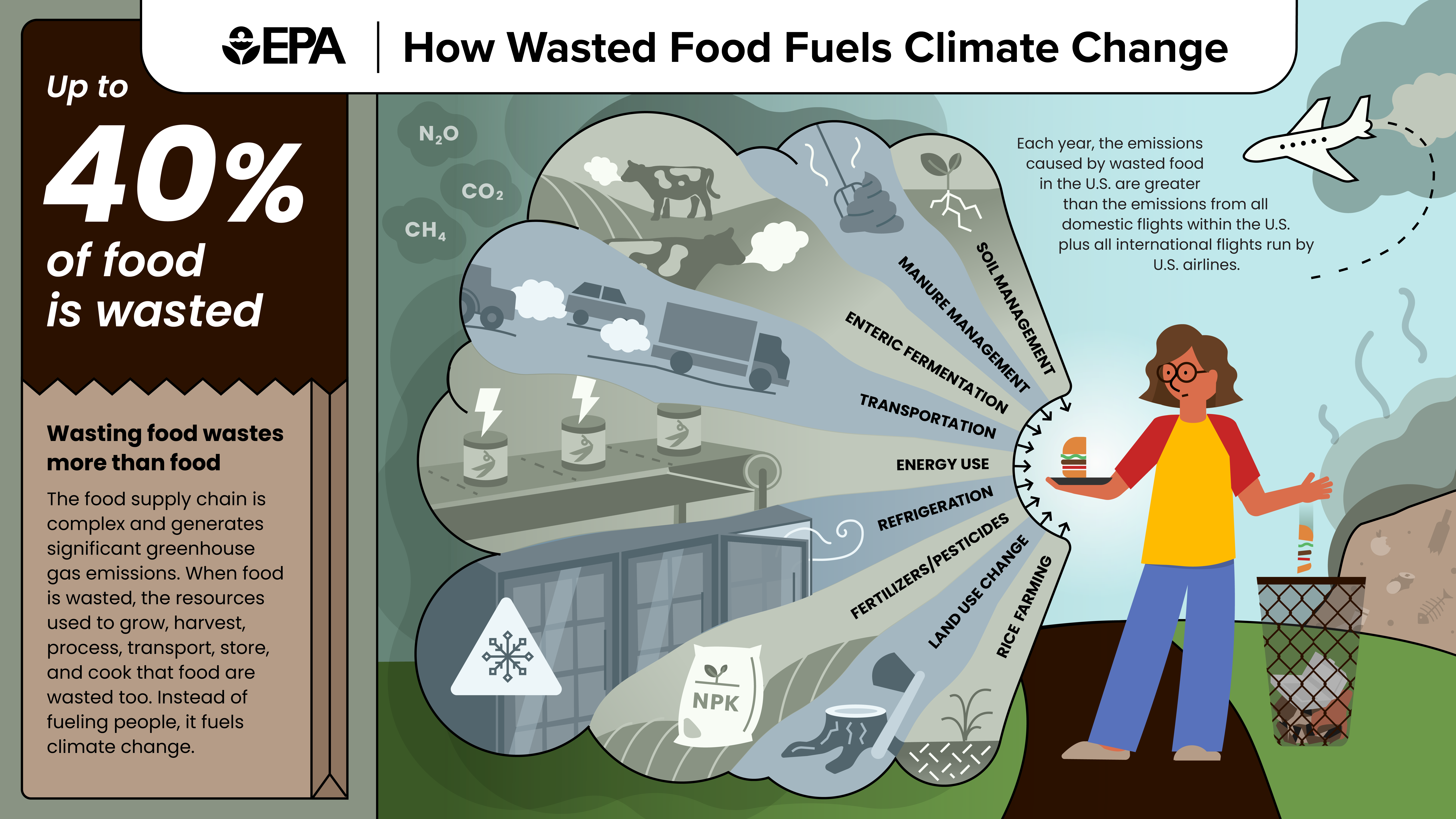Wasted Food: What You Can Do
Main_Content
Wasted food is a big problem, but the good news is we can all do something about it. Reducing wasted food doesn’t just save money. It also helps protect the environment by keeping food out of landfills, reducing greenhouse gas emissions, and supporting local communities.
Every day, food fills our trash cans, but what if we could turn it into something valuable? It isn’t just about throwing away less. It’s about making smarter choices, helping our communities, and protecting the environment.
It all starts at home with simple steps like planning meals and shopping mindfully. Check out this helpful video with some tips. By buying only what we need and storing food properly, we can keep it fresher longer and get the most out of every ingredient. Leftovers don’t have to be forgotten in the fridge—transforming them into new meals can save money and reduce waste.
Not all extra food needs to be discarded. Many Maryland organizations, like the Maryland Food Bank and Move for Hunger, help distribute surplus food to people. Instead of tossing extra groceries or restaurant leftovers, donating food can make a real difference in someone’s life.

Even food that can’t be eaten can still have value. Some Maryland
farms and businesses safely process food scraps into animal feed, turning what would have been waste into nourishment for livestock.
This shift away from a "throwaway" mindset is part of a larger movement toward a circular economy—one where resources are reused, repurposed, and kept in the system instead of being wasted. Preventing waste, composting, food donation, and sustainable farming practices all help create a food system that is better for both people and the planet.
By making small changes, we can all play a role in reducing wasted food and building a more sustainable Maryland. It’s not just about what we throw away—it’s about what we can save, share, and renew.
Food Scraps Collection Programs
Even with careful planning, some scraps are inevitable. That’s where composting comes in. Across Maryland, composting programs are helping turn food scraps into nutrient-rich soil that supports local farms and gardens. Across Maryland, counties and University of Maryland Extension agents offer courses describing how to compost at home. Additionally, Montgomery County offers residential food scraps collection, Prince George’s and Howard County have a curbside composting program, and Baltimore City provides free food scrap drop-off sites. Instead of rotting in landfills, food scraps are being put to good use.
Food Policy Networks
The
Maryland Food System Resiliency Council was formed to support statewide initiatives to decrease that number and develop a more resilient local food system.
Learn more about where to access healthy nutritious foods or ways you can contribute to supporting food recovery agents near you.
Reduction Organizations, Communities, and Campaigns
Sustainable Maryland is a certification program by the Environmental Finance Center (EFC) at the University of Maryland and the Maryland Municipal League for municipalities that promote greenery, saving, and sustainability.
Documents and Resources
Contact Information
For additional information or questions email Shannon McDonald or phone at 410-537-3314